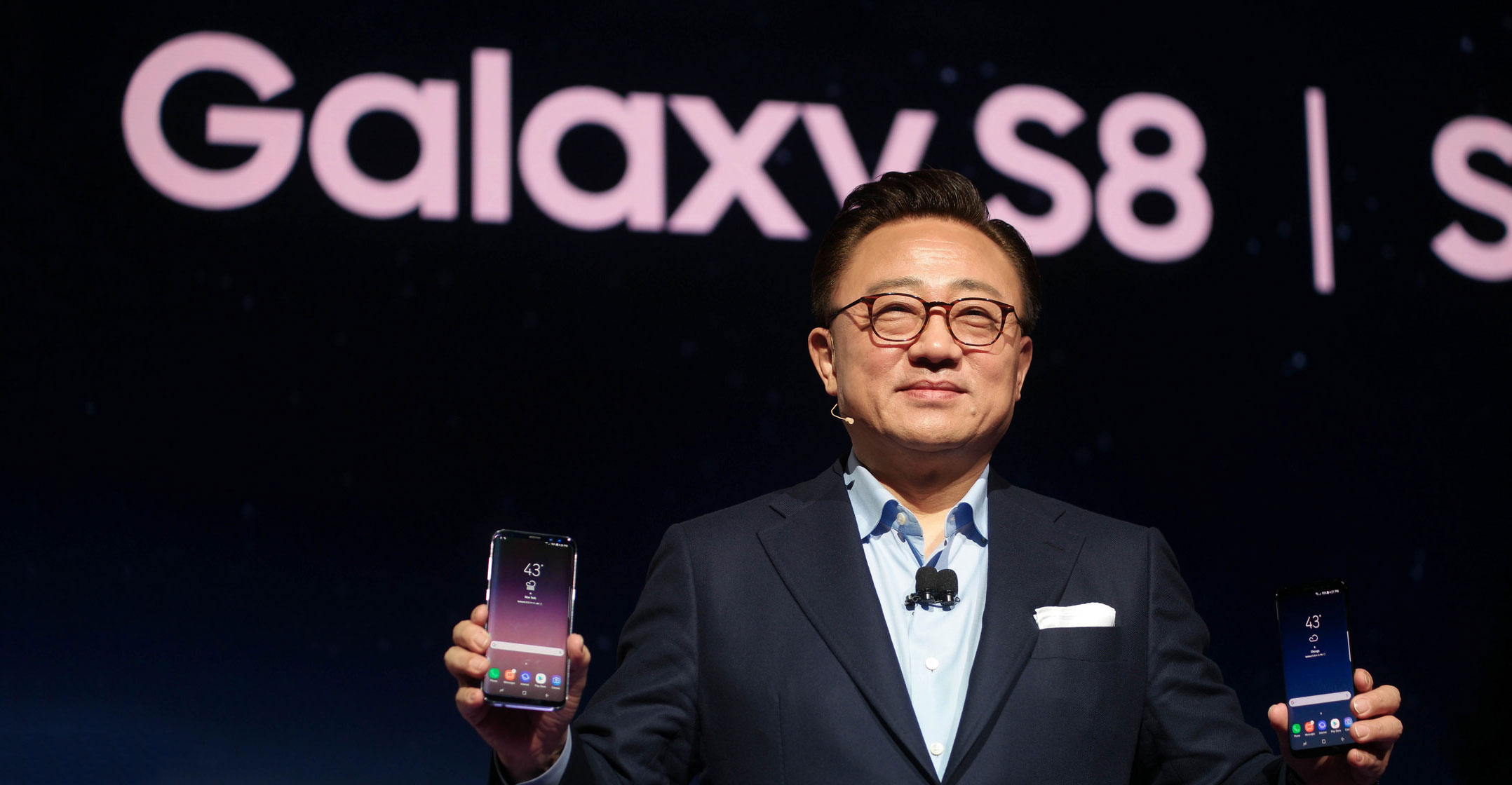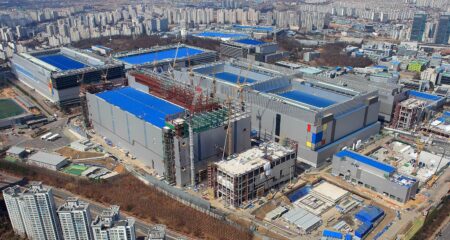
Samsung Electronics topped analyst estimates with its best-ever operating profit as global demand for semiconductors remained strong and the new Galaxy S8 flagship smartphone won over customers.
Operating income rose to 14 trillion won (US$12bn) in the three months ended June, the Suwon, South Korea-based company said in preliminary results released on Friday. That compares with the 13 trillion-won average of analysts’ estimates compiled by Bloomberg.
Revenue rose to 60 trillion won, compared with the 58.4 trillion won projected.
The world’s largest maker of phones and memory chips is counting on the Galaxy S8 to repair its reputation and regain ground lost to Apple and Chinese rivals following the demise of the Note7 device last year. Samsung’s results, which include the first full quarter of sales form the marquee smartphone, shows it’s continuing to benefit from higher prices for the memory chips that go into mobiles and computers.
“Samsung’s been successful with cutting manufacturing costs for memory chips, and that’s been a big factor, while display sales helped to boost the earnings,” said Greg Roh, an analyst at HMC Investment Securities. “Chip prices will keep rising and another record operating profit is in sight for Samsung in the third quarter.”
The company is on track to earn about 15.2 trillion won in the third quarter on the back of Galaxy S8 sales, with annual profit of 54 trillion won this year, Roh said.
More profit than Apple
Samsung’s result could see it generate more profit in the second quarter than Apple. The US company is expected to post operating income of $10.5bn, according to the average of analyst estimates, a typically weaker period ahead of the release of its new iPhones.
Shares of Samsung fell 0.6% in early Seoul trade, paring this year’s gain to 32%.
Samsung won’t provide net income or break out divisional performance until it releases final results later this month. It probably earned 7.5 trillion won in chips, 3.8 trillion won in mobile devices and 1.5 trillion won in displays such as organic light-emitting diode screens, according to Lee Seung-woo, an analyst at Eugene Investment and Securities.
The Korean electronics giant posted its best operating profit in the third quarter of 2013 when it earned 10.2 trillion won. While displays and semiconductors have picked up the slack since the Note7’s recall, the company still gets a significant portion of revenue from smartphones. It hasn’t divulged Galaxy S8 numbers but reviews for the device, which features a bezel-less display and voice-enabled digital assistant, have been favourable. It may also have benefited from the usual lull before Apple releases a new iPhone, typically late in the year.

DDR3 4GB dynamic random access memory chips averaged $2.97 in the second quarter, compared to $1.58 a year earlier, according to data from InSpectrum Tech.
Samsung may displace Intel as the world’s biggest chip maker by sales this year, according to Eugene’s Lee. It reclaimed its position as the world’s biggest smartphone maker in the first quarter, after losing the lead due to the Note7 recall. The company is now counting on the S8 to threaten Apple and widen its lead over up-and-coming rivals such as Huawei and Oppo.
“Rivals have failed to capitalise on the Note7 debacle while Samsung has been raking in profits from semiconductors and displays,” Eugene’s Lee said before the results. “The favourable market in semiconductors will probably continue for some time.”
The company has seen its reputation tarred with the detention and trial of de facto chief Jay Y Lee, on charges he bribed a presidential confidante to secure support for a 2015 merger that cemented his control. The 49-year-old vice chairman denies the charges. — Reported by Sam Kim, (c) 2017 Bloomberg LP




